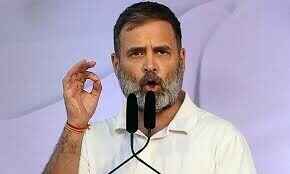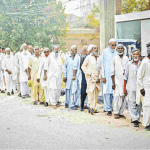NEW DELHI: On Wednesday, Congressman Rahul Gandhi was named leader of the opposition in the Lok Sabha, a significant position that had been unfilled for the entirety of the two terms of the Modi administration.
Mr. Gandhi shook hands with Speaker Om Birla and Prime Minister Narendra Modi before addressing the Lok Sabha, indicating a strong challenge to the latter’s precarious alliance.
On Wednesday, Mr. Birla was chosen again for the position through a voice vote. Opposition MPs characterized the opposition’s decision to field a candidate to challenge Mr. Birla rather than compel a split of votes as a tactical retreat rather than a loss.
In addition to congratulating the speaker and assuring him of the opposition’s support, Mr. Gandhi pressed for the side’s viewpoints to be taken into consideration. It is critical that trust serve as the foundation for cooperation. Allowing the opposition’s opinion to be heard in this house is crucial, the speaker stated.
Handshakes with Modi and expresses desire for the Lok Sabha to meet “often and well”
Mr. Gandhi will participate in prominent committees led by the prime minister in his capacity as opposition leader. These committees are in charge of selecting candidates for important positions including National Human Rights Commission (NHRC) members and directors of India’s leading criminal investigation agency.
The opposition, he said, wanted the house to run “often and well,” and he also stressed how crucial it was that collaboration be based on trust.
Congress gained 99 seats in the most recent general election, but since 2014, no opposition party has been able to secure 10% of the 543 members needed to win the office.
Mr. Gandhi will make sure the administration was always held accountable, according to the Congress party.
On Wednesday, Mr. Gandhi made his first appearance in parliament in his new capacity. Rather than his typical t-shirt, he donned a white khadi kurta and pyjamas.
Mr. Gandhi emphasized how crucial it was that the opposition’s voice be let to be expressed in the house, pointing out that this time around the opposition represents a lot more voices of the Indian people than the previous.
“I am sure that you will give us the opportunity to speak, to represent the voice of the people of India, and to represent our voice.”








